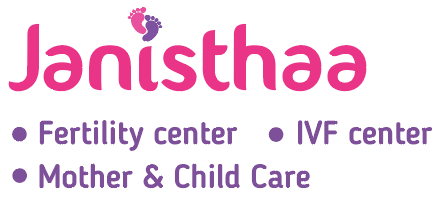In Vitro Fertilisation, or IVF, has been touted as a medical miracle that provides despondent couples with hope. There could be many factors, including infertility, why a couple might struggle to conceive a child naturally and consider the IVF route.
Late parenthood, a general decline in egg quality in women, and a rise in lifestyle disorders are some reasons why couples, more than ever, are turning to assisted methods of conception.
No doubt, IVF has gained popularity and is promising higher success rates. But you’d also want to arm yourself with as much information as possible before making up your mind about it.
Read on as our infertility specialists in Bangalore unwrap seven things you need to know about IVF treatment.
1. The Success Rate
An IVF treatment is a complicated process whose success depends on many factors. The couple’s age and health and the procedure’s timing play a significant role, among others. Which means that there is a chance of the procedure failing. The global average success rate of an IVF cycle is around 35% in the first cycle and around 55-57% by the eighth cycle. Being aware of this rate prepares you for the outcomes better.
2. Your Age and Health Matters
One of the major factors deciding the outcomes of the procedure is the age and health of the couple, especially the woman. A woman’s chances of getting pregnant through IVF fall significantly after age 35. A woman trying for success via IVF should also have healthy eating habits, moderate daily exercise and a positive outlook. If there are other medical illnesses, the chances of getting pregnant will lower significantly.
3. The Physical and Mental Side Effects
One of the unknown aspects of IVF is that it’s a long process and can be overwhelming for your body and mind. It includes many strong medications that control the hormone and the reproductive cycle to get the highest success rate. The medications can lead to several physical side effects like bloating, breast tenderness, abdominal pain, etc. There are also side effects that affect one mentally. These include being moody and emotional. The best IVF treatment in Bangalore is the one that prepares you for these changes and supports you through the process so you can manage them better.
4. The Expense
The price of the IVF procedure depends on the different tests and scans one has to undergo. It may not be equal for everyone as each has a different journey. The IVF procedure is generally cost-intensive. Many expensive medicines, tests, scans and equipment are involved.
5. The duration
The time taken to conduct a successful IVF procedure can be different from one person to another. It is generally a long procedure and can take 4-5 weeks for one cycle. It involves removing the egg from the ovaries, fertilising it, stimulating the body for egg collection etc. The effectiveness of the medication may also differ from one person to the next, which can lengthen the procedure. Before you set out for the IVF procedure, be prepared to spare adequate time.
6. The Number of Cycles
An IVF cycle usually lasts for 4-5 weeks. However, not every cycle may be successful. The chances of the IVF procedure succeeding are only 35% in the first cycle. One must know and be prepared for multiple mental cycles, as they can get physically and mentally taxing.
7. Choosing the Right Clinic
The fertility clinic you pick greatly affects the success rate. You need to know this before setting out for an IVF procedure.
Several fertility hospitals and clinics claim sky-high success rates, which can often be misleading. Your best bet to avoid these traps is to research and be as informed as possible. Consulting with reputed infertility specialists in Bangalore can help you form realistic expectations and understand whether IVF is indeed for you. It also helps you know what methodology they use and whether or not they provide specialised consultations for mental and physical health, insurance coverage, etc.
Care and compassion are the twin pillars of fertility solutions. It’s in your best interests to choose a clinic like Janisthaa IVF that displays these qualities.
What Makes Janisthaa IVF the Best IVF Treatment in Bangalore?
At Janisthaa, we take a holistic approach to reproductive health. As the best IVF treatment in Bangalore, we offer a world-class facility for IVF treatments using state-of-the-art technology.
We are known and loved for the personalised guidance, assistance, and care we provide to couples on their fertility journey. Our philosophy is to combine compassion and knowledge with expertise and ensure patients receive our services in the most positive and supportive environment.
Want to know more about IVF? Is it safe? Is it successful? Is it for you?
Call 9591111407 to talk to our infertility specialists in Bangalore today!

